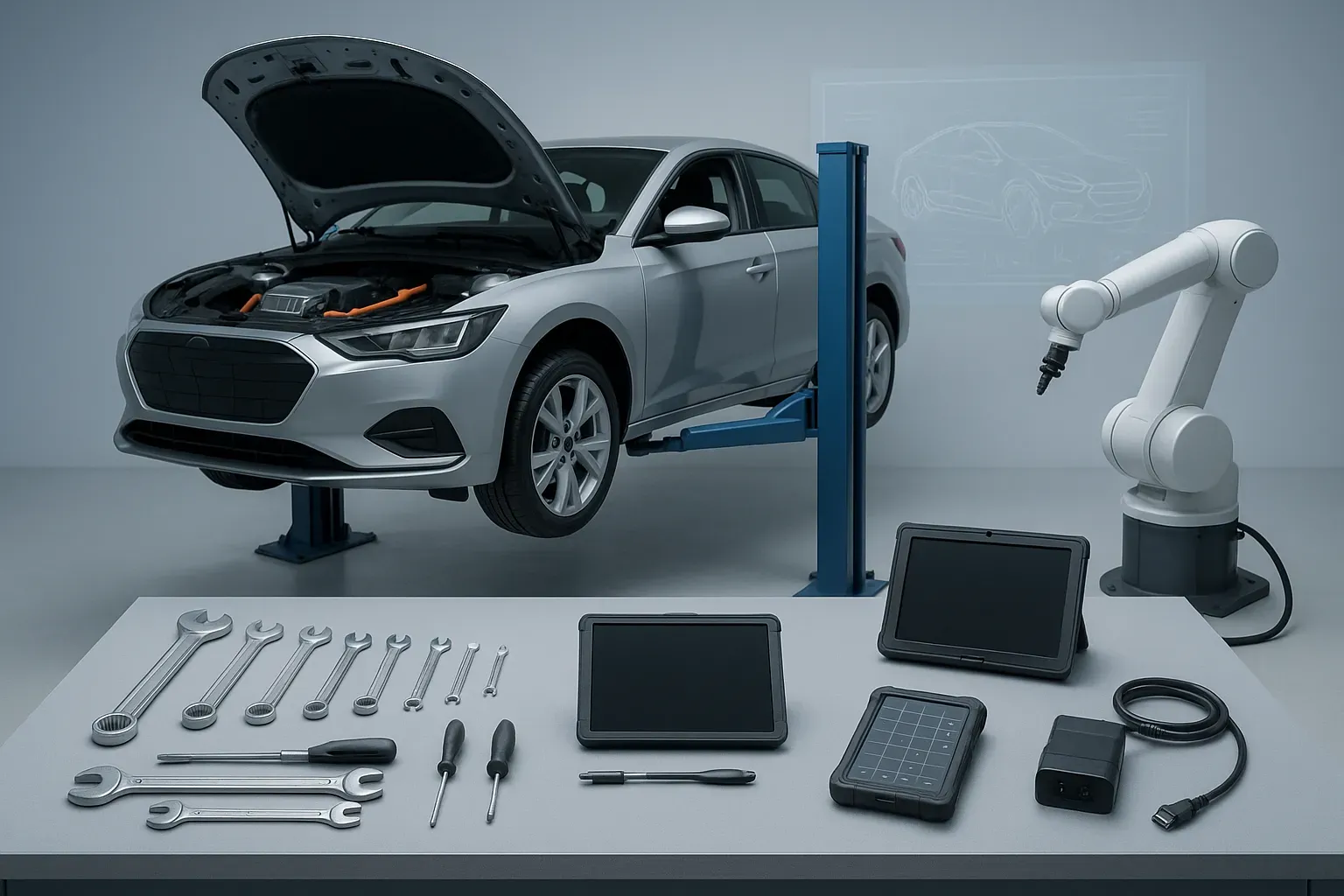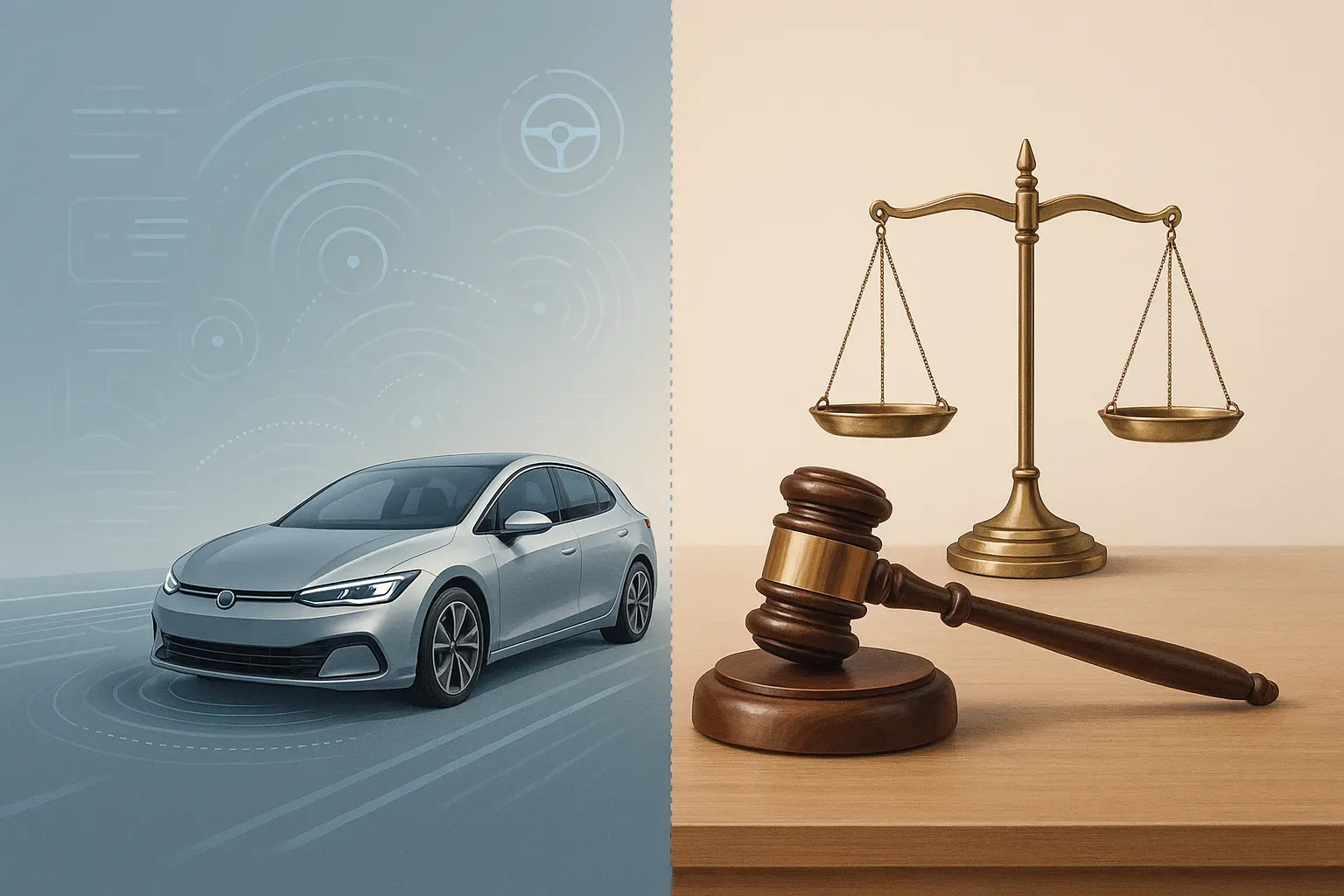Aspiring vehicle maintenance professionals can gain valuable insights from industry experts on balancing technical and mechanical knowledge. This article outlines essential approaches to mastering electrical systems while maintaining core mechanical skills in today’s automotive industry. Experts recommend cultivating curiosity and pursuing specialized certifications to build a successful career in vehicle maintenance.
- Stay Curious and Earn Valuable Certifications
- Balance Technology Skills With Mechanical Fundamentals
- Master Electrical Systems While Maintaining Mechanical Knowledge
- Learn to Use Diagnostic Software Tools
- Specialize in Autonomous Vehicle Technologies
- Network With Experienced Industry Professionals
- Pursue Regular Manufacturer Specific Certifications
Stay Curious and Earn Valuable Certifications
I’ve spent over ten years leading automotive service teams and making operations run smoother. If you are thinking about going into this field, here is the deal. It is quick-paced. You have to be knowledgeable in engine work, electrical work, and diagnostics. Vehicle software and connected car systems are everywhere now, so you have to know your way around them, too.
You also have to explain problems in a way that customers can understand and work smoothly with your team. Cars have a way of breaking down at the worst possible moments, so being able to think fast and handle surprises is part of the job.
Certifications are more important now than they have ever been in the past. When you earn certifications, such as those from ASE, specific to a manufacturer, or another program, you demonstrate your skills and become a marketable employee. These help you stand out, keep you up to date, and can even open the door to better pay or cooler, specialized work.
The most important thing: Be curious, stay flexible, and pay attention to the little details. Do that and you won’t just survive. You’ll actually enjoy the ride.

Balance Technology Skills With Mechanical Fundamentals
In the next few years, if you’d like to pursue a profession in vehicle maintenance, I suggest you understand technology and the need to relearn, and relearn. Cars of the future will be fully integrated with electronics, computers, and sophisticated and complex diagnostics. This means you will need to master strong skills in the fields of electrical systems, diagnostic software, and hybrid/electric vehicle technologies.
Furthermore, a mechanical element will never be ignored, as the need to understand the construction of engines, the construction of transmissions, and braking systems will always be crucial. Finally, soft skills such as attentiveness, detail-orientation, and communication become particularly useful in all these cases in which the mechanic needs to clarify complex matters to the client. To remain competitive in this one-of-a-kind industry, you must have the right balance of real-world exposure and technology.

Master Electrical Systems While Maintaining Mechanical Knowledge
If you’re thinking of going into an auto maintenance career, take note of training in electrical systems. Cars keep getting more and more like computers on wheels, and experience in diagnostics and wiring can be one of those differentiators for you. Now, don’t lose sight of fundamentals — experience in engines, braking systems, and suspensions still keeps people safe and automobiles on the road.
The best techs I’ve run across are curious, keep learning new tools, and don’t have any trouble getting dirty while simultaneously using a scanner. If you can mix good mechanical skills with electrical and software troubleshooting, you’ll always stay in demand.

Learn to Use Diagnostic Software Tools
Mastering diagnostic software tools has become a fundamental requirement for successful vehicle maintenance careers. Modern vehicles contain dozens of computer modules that require specific software to access, interpret, and resolve issues efficiently. Technicians proficient with these digital tools can identify problems more accurately and complete repairs in significantly less time.
The ability to properly utilize manufacturer and aftermarket diagnostic platforms often makes the difference between guesswork and precision in the repair process. Software proficiency also enables technicians to perform necessary programming and coding functions that are increasingly common in vehicle repair work. Invest time in learning major diagnostic platforms through official training programs and practice exercises with different vehicle makes.
Specialize in Autonomous Vehicle Technologies
Specializing in autonomous vehicle technologies offers a promising career path for forward-thinking maintenance professionals. The automotive industry is rapidly shifting toward self-driving capabilities, creating high demand for technicians who understand these sophisticated systems. Autonomous vehicles incorporate advanced sensors, artificial intelligence, and complex software that require specialized knowledge beyond traditional vehicle repair.
Professionals with expertise in this area can expect higher compensation as fewer technicians currently possess these cutting-edge skills. This specialization also provides job security as the transportation sector continues its technological transformation. Begin exploring autonomous vehicle training programs and online courses to position yourself at the forefront of this revolutionary field.
Network With Experienced Industry Professionals
Networking with experienced industry professionals provides invaluable insights that cannot be gained through formal education alone. Established technicians can share real-world solutions to complex problems, advice on handling difficult repairs, and warnings about common pitfalls in the field. These connections often lead to mentorship opportunities, job referrals, and insider knowledge about which specializations are most in demand.
Building professional relationships also helps maintenance specialists stay informed about industry trends and emerging technologies through the experiences of others. The collective wisdom gained through networking frequently accelerates career progression and opens doors to advancement opportunities. Attend industry events, join professional organizations, and participate in online forums to begin building these crucial connections.
Pursue Regular Manufacturer Specific Certifications
Pursuing manufacturer-specific certifications regularly demonstrates commitment to excellence and ensures knowledge of the latest vehicle systems. Automakers continually update their technology, making ongoing certification essential to maintain competence with new models and features. These credentials provide validation of expertise that customers and employers recognize, often translating to higher earning potential and more advanced job opportunities.
Manufacturer training frequently covers proprietary systems and specialized procedures not available through general automotive education programs. Certified professionals also gain access to technical resources, support hotlines, and exclusive repair information that can be critical when facing challenging diagnostic situations. Research certification programs from major manufacturers and develop a strategic plan to obtain credentials that align with career goals.







